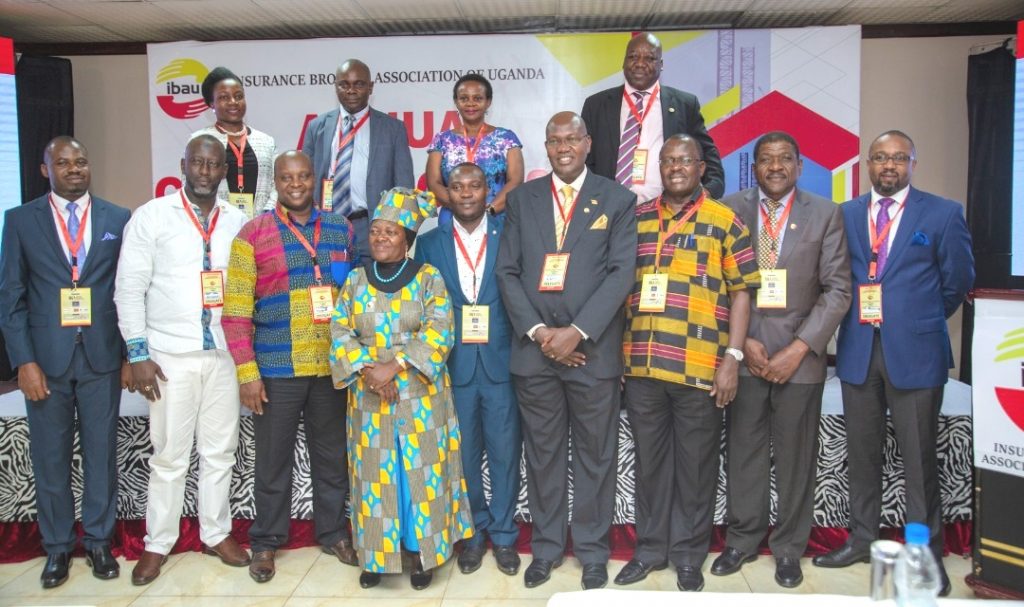Insurers told to be more flexible to attract wary Ugandans
 The conference provided a platform for regional licensed insurance brokers to discuss challenges facing the sector and look for the best solutions.
The conference provided a platform for regional licensed insurance brokers to discuss challenges facing the sector and look for the best solutions.
April 8—Insurance brokers brainstormed various ways to stimulate business in Uganda during their inaugural annual conference held in Kampala late last week including the need to be more flexible.
At one percent, Uganda’s insurance penetration remains low, with neighbouring Kenya boasting the highest in the East African Community member states at about 2.75%. Tanzania and Rwanda are not all that better off than Uganda, but the Uganda Insurance Association (UIA) has a 10-year plan to grow penetration to 3 percent by 2025. UIA has 35 members and current total turnover for the industry is just under $200 million.
However, according to consultants, PwC, Nigerian penetration is closer to 0.4 percent than 0.5 percent. For the most part, Ugandans are skeptical about taking out insurance cover except when it is mandatory and recovery for the sector has been slow. This is a carry-on from the economic instability that adversely affected the financial sector between the early 1970s and late-1980s. In the past, there have also been cases of insurers renegading on their obligations to clients which has encouraged the view of them not being trusted.
A couple of years ago, Miriam Magala, UIA chief executive officer said, “Insurance is still largely seen as a grudge payment and is, by its nature, a very price sensitive service. Changes in policy and regulation are therefore bound to influence the cost of insurance and, as a result, the uptake of this service.”
Last Friday, Nelson Omollo, chairperson Association of Insurance Brokers of Kenya said it is crucial for insurance providers/brokers to understand the current needs of customers to develop relevant policies.
“Customers now want something that is flexible, affordable and easy to understand. You must come down to their level, explain these policies in terms that relate to their everyday situation,” he said.
The highest penetration across the continent is in South Africa a 17 pc, which also accounts for 80 pc of all insured people in Africa. According to Solomon Rubondo, the Insurance Brokers Association of Uganda (IBAU) chairman of IBAU, the conference provided a platform for regional licensed insurance brokers to discuss challenges facing the sector and look for the best solutions.
The conference theme was ‘The deepening agency: a broker’s strategy’, but prominent economist, Fred Muhumuza said the insurance industry will only grow if there are more affordable and flexible policies available.
“Why is there no political insurance in Uganda? A lot of young people would want to insure their expensive electronic gadgets,small traders also need insurance, but only if offered in affordable terms. Don’t only be long term businesses, be flexible,” he said.
Muhumza highlighted the need for the insurance industry to embrace technology as a way of extending services to their customers and lowering costs.
Protazio Sande, Director Market Research and Development Insurance Regulation Authority (IRA) suggested insurance providers to build brands that are trustable when they are still small. “Insurance runs on trust and credibility. If you want people to trust you with their money, you must protect your brand by always being truthful.”
Minet Uganda CEO, Maurice Amogola and also the conference chair said there is still a lot of unexploited risk areas which insurance firms can cover. “Recent natural calamities in Bududa, eastern Uganda and the recent tremors that affected parts of Kenya, the volcanic Ngora Rock in eastern Uganda are all risky areas that require us to monitor potential eruption and consequential damages,” he said
He said the conference will become an annual event to help increase insurance acceptance across the country which will go a long way in fostering economic development.

 Uganda’s new sugar regulatory policy to be spelt out in early 2024
Uganda’s new sugar regulatory policy to be spelt out in early 2024
 Nigerian who bid for English premier league team faces US fraud charges
Nigerian who bid for English premier league team faces US fraud charges
 US African foundation joins Stanbic Holdings to award $400,000 in grants
US African foundation joins Stanbic Holdings to award $400,000 in grants
 Standard Bank Group appoints new Chief Executive for Uganda Holdings
Standard Bank Group appoints new Chief Executive for Uganda Holdings
 TradeMark Africa introduces new App to limit EAC trade barriers
TradeMark Africa introduces new App to limit EAC trade barriers
 Employer hiring up during November as Stanbic PMI rises to 53.4
Employer hiring up during November as Stanbic PMI rises to 53.4
